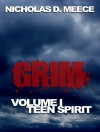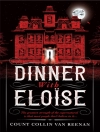In ‘House of Torment, ‘ Guy Thorne embarks on a harrowing exploration of psychological horror and the complexities of human emotions. The narrative unfolds within the confines of a haunted mansion, where the protagonist grapples with existential dread and the trauma of the past. Thorne’s evocative prose immerses readers in a chilling atmosphere, blending Gothic elements with a modern sensibility. The novel not only captures the eerie ambiance of the setting but also delves into themes of guilt, redemption, and the inescapable nature of human suffering, making it a profound member of the early 20th-century horror literature canon. Guy Thorne, a British author known for his keen psychological insights, draws upon his own experiences within the realms of society and the human psyche. His literary career is marked by a fascination with the supernatural and the darker aspects of existence. Thorne’s background in journalism and engagement with psychological themes profoundly shape his writing, lending authenticity and depth to his compelling characters and haunting scenarios that resonate with readers. ‘House of Torment’ is a must-read for aficionados of Gothic horror and psychological thrillers. Thorne’s masterful storytelling invites readers to confront their own fears and introspections, making this novel not only a chilling tale but also a mirror reflecting the complexities of the human condition.
लेखक के बारे में
Guy Thorne is the pen name of Cyril Arthur Edward Ranger Gull (1876–1923), an English novelist and journalist known for his prolific contribution to early 20th-century popular fiction. His works typically interweave elements of adventure, romance, and the macabre, often reflecting the mores and anxieties of the Edwardian era. Thorne carved a niche for himself with his recognizable literary style, marked by melodrama and sensationalism, resonating with an audience hungry for escapist literature during a time of social and technological change.
One of Thorne’s notable works, ‘House of Torment, ‘ exemplifies his flair for gothic and sensational storytelling. It explores themes of psychological horror, a reflection of the inner turmoil and the darker aspects of human nature. This book, like many of Thorne’s narratives, is imbued with an intensity that captures the reader’s imagination, making it emblematic of Thorne’s broader literary achievements. Despite the escapist nature of his work, Thorne’s legacy endures in the annals of genre fiction, serving as a testament to the entertainment value and cultural impact of early pulp literature.












